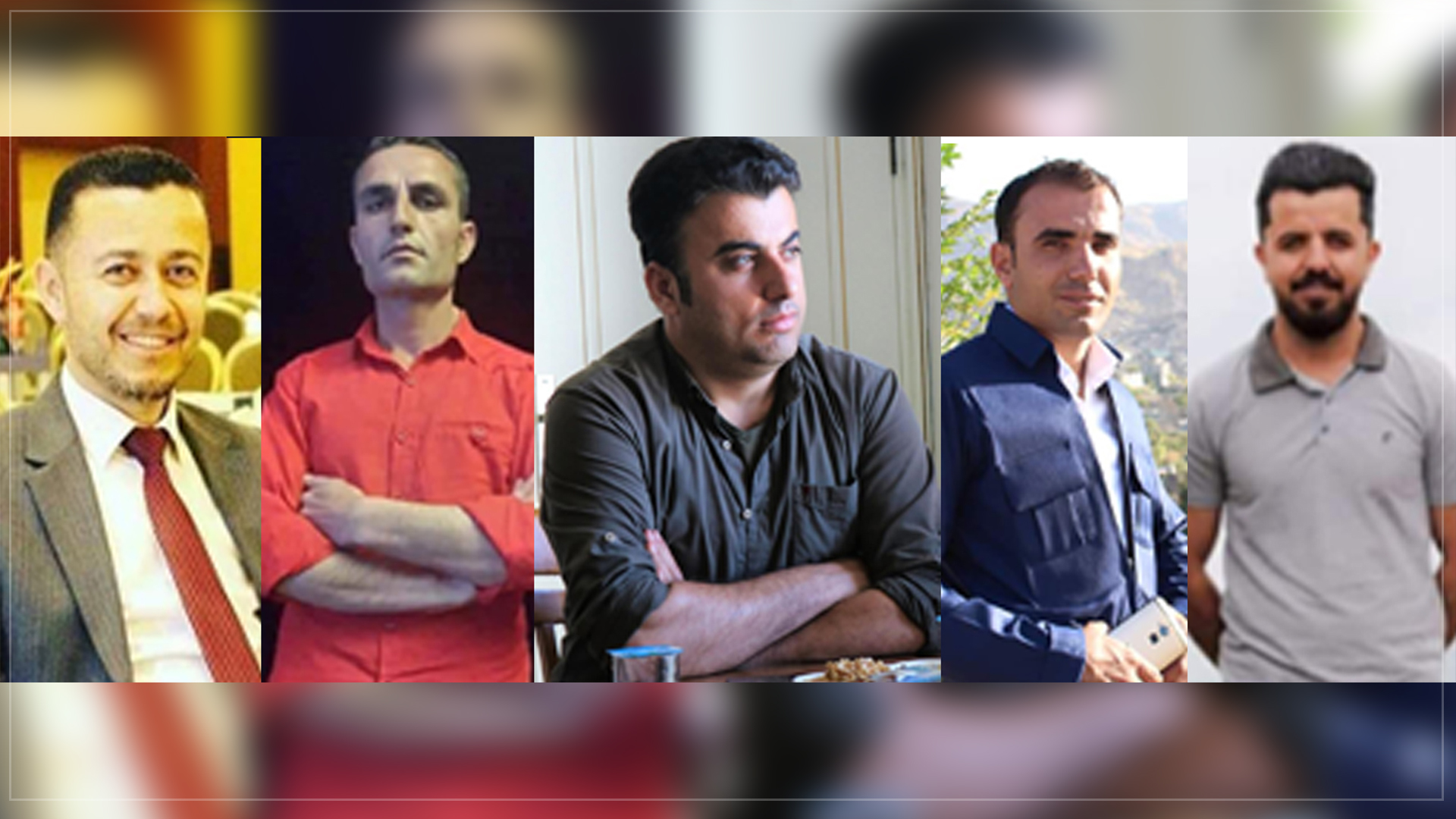
Left to right: Shvan Saeed, Ayaz Karam, Sherwan Sherwani, Guhdar Zebari, and Hariwan Issa (NRT Digital Media)
AM:10:53:12/09/2021
4560 View
+
-
SULAIMANI — Seventy-two imprisoned journalists, activists,
and ordinary citizens arrested in Duhok governorate last year have been on
hunger strike since September 6, according to the brother of one of the detainees
Ayhan Saeed Omar.
Omar, who Introduces himself as a representative of the
detainees’ families, said in a statement on Saturday (September 11) that the
hunger strike is in response to the alleged psychological and physical torture,
injustices, and denial of the legal rights of the detainees, citing a source
from Erbil General Asayish Prison.
"Now the condition of some of them is very bad,” he said.
On August 7, defense lawyers said that the detainees were
subjected to torture at the Asayish prison where they were being held and wereput under intense pressure from the authorities, which were inconsistent with
their rights.
The Asayish in Erbil and Duhok are affiliated with the
Kurdistan Democratic Party (KDP).
Recently, the trials of two groups of imprisoned activists
and teachers who were arrested last year were postponed by a court in Erbil.
On Thursday, two journalists and two activists who were
controversially sentenced to six years in prison during a February trial were
transferred from a facility run by the Asayish to Erbil Reform Prison.
Omar called on the UN, Iraq’s Council of Representatives, Kurdistan
Parliament, foreign representatives in Erbil and Baghdad, and human rights organizations
to visit the detainees and pressure authorities to provide "legal rights” for
them.
The legal rights, he said, include allowing the detainees to
meet their families and lawyers, transferring them from Asayish prison to adult
reform prisons, holding trials and finalizing their cases, and dealing with the
cases in accordance with the articles included in Law Number 11 of the
Organization of Demonstrations in the Kurdistan Region.
"They are innocent and have been arrested over different
views and this poses a threat to the democratic process and damages the Region’s
reputation.”
Following protests in Duhok last year against the Kurdistan
Regional Government’s (KRG) economic policies, the local security forces, which
are affiliated with the KDP arrested dozens of people in a widespread crackdown
to suppress expressions of dissent.
Since then, at least seventeen activists and journalists
have been tried on serious national security charges, in what have been widely
condemned as politically motivated trials that are beset with procedural flaws
that do not adhere to international standards of due process and judicial
independence.
Foreign and local watchdogs have expressed alarm about the
deterioration of freedom of the press and expression in the Kurdistan Region
since Prime Minister Masrour Barzani, who is a senior KDP official, took office
in July 2019.
(NRT Digital Media)